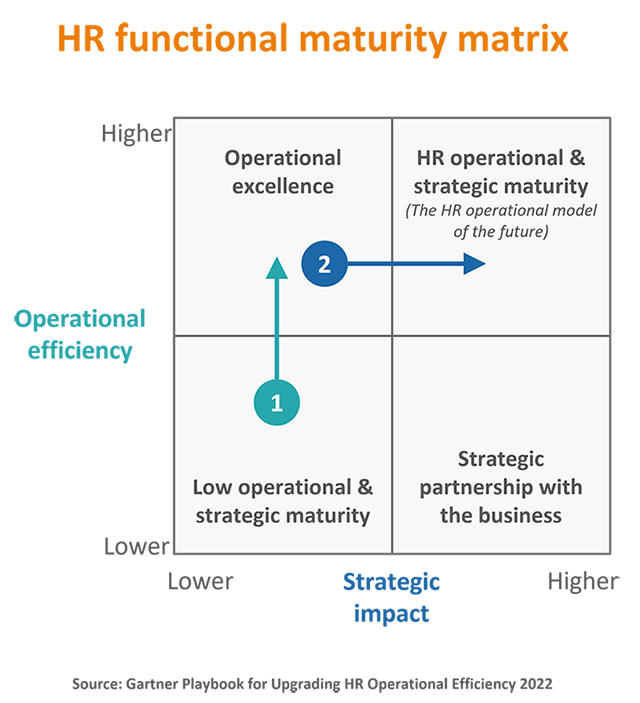
When I work with various organisations, the level of their HR maturity is always something I need to understand. This graphic from Gartner tells part of the story and is a useful start point.

On the one hand, do they have good practices in place, a sensible HR operating model and are they doing what the business needs?
On the other hand, what are relationships like between HR and business leaders and managers? How are HR regarded?
Naturally, you can’t have one without the other.
The relationships and reputation that HR build with their stakeholders are the conduit for everything that they want to achieve.
Business leaders can be tough, money-minded and have strong egos. They don’t want to be held back (as they see it) by looking at the broader picture of all the organisation’s stakeholders and their needs.
Gartner suggest here that you’ve got to deliver the goods (operational excellence) before you can build strategic HR maturity.
I agree, to a point. The truth is that HR can’t deliver more than process efficiency without the proactive support of line leaders and managers.
Tackling performance, retention, workforce planning … these have to be done in partnership if they’re going to deliver results.
What do you think?
Enable-HR International Ltd
90a High Street
Hanham
Bristol
BS15 3EJ
Company Registered in England, No: 08914016
©2023 All rights reserved Enable-HR, Bristol